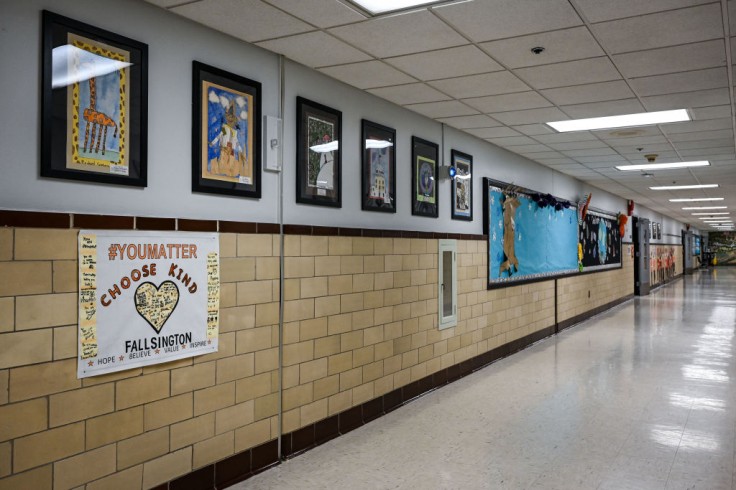
In a pivotal turn of events, three educators from the Julia R. Masterman Laboratory and Demonstration School have launched a Philadelphia teachers lawsuit against the School District of Philadelphia. Their claim, deeply rooted in First Amendment rights, is a direct challenge against the punitive measures they faced for voicing concerns over asbestos exposure in schools.
Backdrop to the Lawsuit
Tannen, Gray, and Celli, the trio behind the Philadelphia teachers lawsuit, contend that the district penalized them for working outdoors to highlight the health risks of asbestos present in their school environment.
Their protest was both symbolic and precautionary. Despite fulfilling their teaching duties from the outdoor patio of the school, they were marked absent and faced pay cuts. The narrative takes an intriguing twist, revealing that the asbestos issue in Philadelphia schools extends beyond individual concerns.
Last year, the School District of Philadelphia sued the City of Philadelphia over a 2022 law focused on managing environmental hazards, including asbestos. Fortunately, this past Wednesday marked a significant breakthrough. Both parties announced a settlement agreement, pledging enhanced inspections and greater transparency.
Journey Towards Safer Schools
While the Philadelphia teachers lawsuit might be the talk of the town, the district's preparations for the upcoming school year are in full swing. Mitchell Elementary in Kingsessing stands as a testament to this commitment.
After the discovery of asbestos exposure in schools forced its shutdown last year, intensive remediation activities took place. Mitchell was not an isolated case - it was one of six schools closed due to asbestos concerns.
Representatives for the district, however, are optimistic about the future. Their hope lies in reopening all Philadelphia schools this September. Community members echo these sentiments, calling for government intervention.
"Children reside in these areas, and this is their educational haven. Many can't seek education outside the city. We must prioritize their safety," remarked a local resident.
The Philadelphia City Council's Education Committee held extensive discussions on ensuring students' safety and school continuity. Board president Reginald Streater showcased a positive outlook, stating, "We've charted a path forward, focusing on sustainability and adhering to legal mandates."
As part of this initiative, all school buildings will undergo biannual inspections, with the findings shared online. Mayor Jim Kenney's statement on the settlement accentuated the commitment to safe schooling.
A key highlight of this agreement is the allocation of $2.5 million from the Department of Public Health. This fund will bolster data management regarding environmental hazards, thereby enhancing transparency.
Read Also: California Takes Bold Stand Against Harmful Additives: Red Dye No. 3 Banned in Assembly Bill 418
Community's Quest for Clarity
The pervasive problem of asbestos in Philadelphia schools remains a sore point for many. The district has faced multiple school closures in the past due to the detection of asbestos, a mineral known for its heat resistance but also for the serious health risks of asbestos exposure.
To address community concerns and queries, the school district has made an asbestos FAQ available on its website. This unfolding saga in Philadelphia exemplifies the intersection of individual rights, community concerns, and systemic challenges.
As schools open their doors for the next academic year, one thing is evident: ensuring the safety and well-being of students and staff remains paramount.